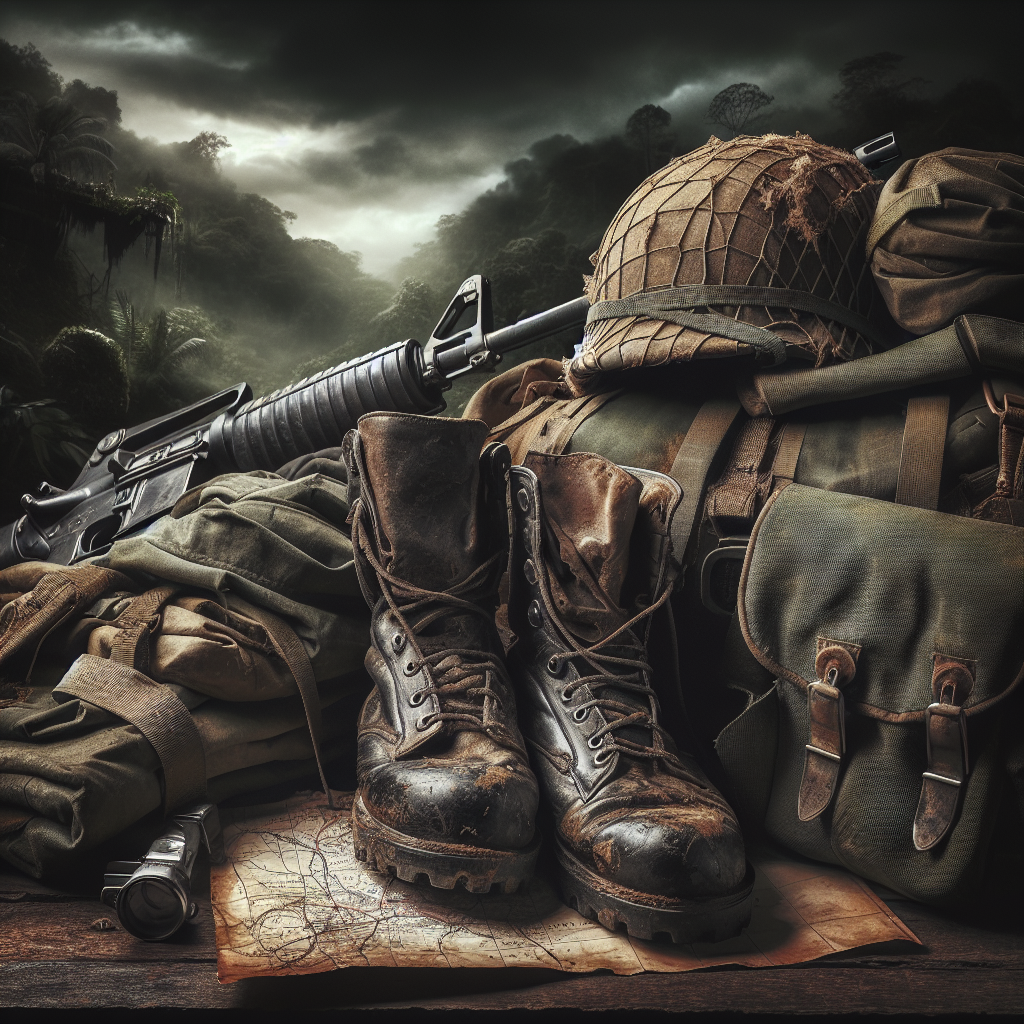The Burdens We Carry: Finding Hope in Faith
In today’s fast-paced world, we often carry more than just physical loads. Emotional and spiritual burdens can weigh us down just as heavily. Tim O’Brien’s powerful novel, The Things They Carried, paints a vivid illustration of the tangible and intangible loads borne by soldiers during the Vietnam War. Through their struggles, we can glean significant insights and, by turning to biblical principles, discern a path to hope, healing, and lightening our burdens.
Understanding Personal Burdens
In The Things They Carried, O’Brien masterfully presents the physical items that soldiers lugged through jungles and battlefields. More poignantly, he reveals the emotional, mental, and spiritual loads they shouldered—fear, guilt, love, and memories that refused to be left behind. Each carried item told a story, just as each of us carries elements of our past and present that shape our journey.
Similarly, the Bible speaks to the burdens of life. In Matthew 11:28-30 (NIV), Jesus invites us, "Come to me, all you who are weary and burdened, and I will give you rest." His words offer solace and a practical step towards managing life’s weights. Just as soldiers found ways to cope and continue moving forward, faith provides us tools and encouragement to lay our burdens down and find rest.
Reflection Question:
- What are some of the intangible burdens you carry, and how do they affect your daily life?
Faith as a Source of Strength
In the heart of battle, the soldiers in O’Brien’s narrative often found their strength in camaraderie. They leaned on each other amidst chaos and danger, a reminder of the power of community in overcoming burdens. In our personal lives, faith and fellowship can be equally sustaining.
The Bible teaches about the strength found in shared faith. Ecclesiastes 4:9-10 (NIV) reminds us, "Two are better than one, because they have a good return for their labor: If either of them falls down, one can help the other up." In trusting relationships and shared spiritual journeys, we find encouragement and support.
Being part of a community of faith, whether through a church group or a small circle of friends, provides a network of support that mirrors the brotherhood seen among O’Brien’s soldiers. Together, we can bear burdens and celebrate victories, reflecting the love and support God intends for us.
Reflection Question:
- How has a community or group of friends helped you manage your burdens, and what steps can you take to strengthen these connections?
The Healing Power of Forgiveness
A recurring theme in The Things They Carried is the haunting nature of guilt and remorse. Similarly, in our lives, past mistakes can become burdens we drag with us, unable to break free. Yet, the Bible offers a path to liberation through forgiveness.
Ephesians 4:31-32 (NIV) advises, "Get rid of all bitterness, rage and anger, brawling and slander, along with every form of malice. Be kind and compassionate to one another, forgiving each other, just as in Christ God forgave you." Forgiveness, both given and received, can lighten our loads and allow us to move forward unshackled by past wrongs.
In the act of forgiveness, we not only release others but also free ourselves from the chains of bitterness and guilt. It is a journey of faith where we trust in God’s redemptive power to heal and restore.
Reflection Question:
- Is there someone in your life you need to forgive, or do you need to seek forgiveness from others?
Embracing Hope for the Journey Ahead
Despite the challenges faced by O’Brien’s characters, each step forward was an act of hope, a belief in the possibility of surviving and finding peace. In our faith journey, hope propels us forward, a promise of divine strength and guidance through the trials we face.
The Apostle Paul, writing in Romans 15:13 (NIV), offers this blessing: "May the God of hope fill you with all joy and peace as you trust in him, so that you may overflow with hope by the power of the Holy Spirit." Embracing hope means trusting God with our future, confident that He holds us in His hands.
As we move forward in life, embracing hope fuels us to envision a future full of promise and possibility, secured by faith and the assurance of God’s unwavering presence.
Reflection Question:
- What are some ways you can actively cultivate hope in your life, even in trying times?
Conclusion: A Call to Share and Lighten the Load
In The Things They Carried, everyone had to find their own way of coping with the burdens of war. In our lives, we have the unique advantage of faith—a guiding presence that offers rest, forgiveness, strength, and hope. By reaching out to Christ and our faith communities, we can share our burdens and lighten the loads we carry.
Call to Action:
Reflect on the burdens you carry, both seen and unseen. Consider ways you can lay them down through prayer, community support, or acts of forgiveness. Share your experiences or insights in the comments below; your journey might inspire or encourage someone else to find hope and healing.
By incorporating biblical principles into our lives, we transform our struggles into stories of growth and victory, paving the way for a future where our burdens no longer weigh us down.
If you want to learn how ANY book relates to Biblical principles, please try our Books and Scripture GPT. Simply type in the name of a book and let it show you insights you might not have been aware of!


